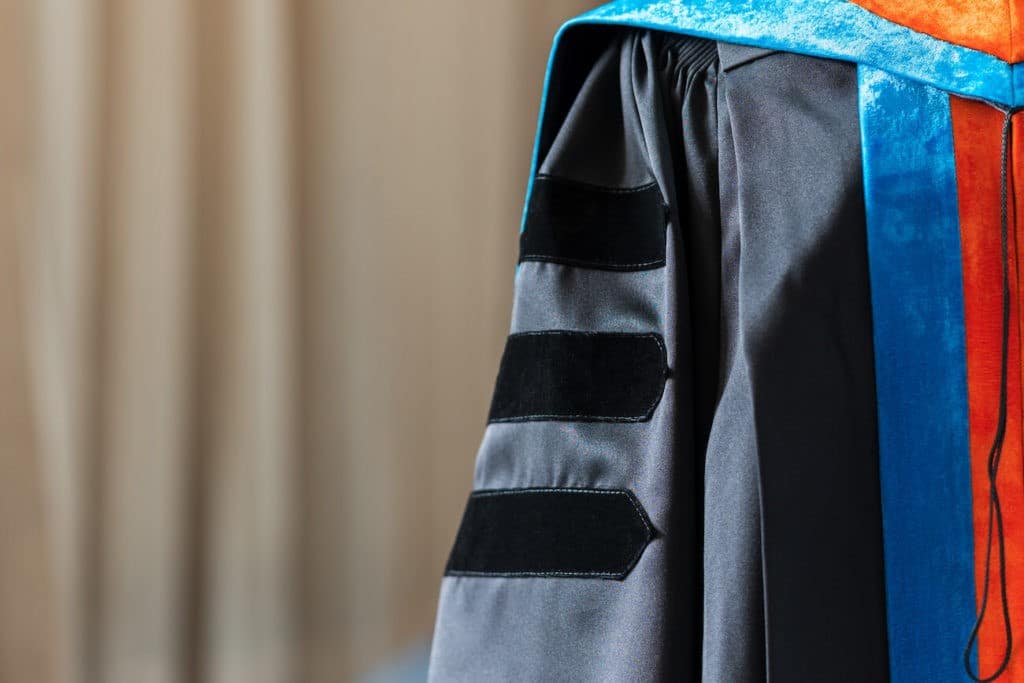A doctorate degree represents the terminal level of education pursued by those in the field of education. While the Ph.D. (Doctor of Philosophy) generally focuses on preparing candidates for academic research, the Ed.D. (Doctor of Education) is an applied professional doctorate. It focuses more heavily upon professional practice, such as school administration or special education, while still including a robust research component.
Reputable Ed.D. programs generally require approximately 60 credits, comprised of required and elective courses, along with a nine-credit dissertation.
What is the Primary Goal of an Ed.D. Program? (Expertise & Experience)
Ed.D. programs focus on developing exemplary educational leaders who are able to teach and train other educators, and who possess the skills to understand and conduct research into educational matters.
The Ed.D. program capitalizes on the prior knowledge and professional experience of educators and elevates their skills through advanced training in:
- Leadership
- Legal Issues
- Statistics
- Qualitative and Quantitative Analysis
Career Pathways for Ed.D. Holders
The Ed.D. is a useful degree because it provides two distinctive and highly valuable pathways for those who attain it, emphasizing the degree holder’s unique combination of expertise and experience:
1. Educational Leadership and Administration (Most Common)
This pathway prepares and/or enriches school administrators, such as:
- Superintendents
- Principals
- Directors of Curriculum
- Special Education Directors
Ed.D. graduates possess the ability to analyze both instructional and situational data to inform their decisions. This background lends itself to improving schools academically and instructionally, as degree holders are fully trained in managing curriculum and personnel.
They not only identify areas of improvement within their institutions but also manage the human and fiscal resources necessary to complete the improvement process.
2. Postsecondary Instruction (College-Level Teaching)
Individuals possessing an Ed.D. typically have extensive training and a vast array of professional experience to bring to the college-level classroom. This factor makes Ed.D. degree holders uniquely qualified to instruct future educators and school administrators because they possess:
- Textbook knowledge and research abilities.
- The essential experiential background necessary to assess how popular theories and approaches function in actuality (the “real-world” experience).
As a result, college and university professors with an Ed.D. are better equipped to analyze the information they present to their students, continuing the cycle of developing effective leaders.
Structure and Completion of Ed.D. Programs (Trustworthiness)
Ed.D. programs vary from institution to institution based upon specific requirements, concentration areas, and format.
Credits and Timeline
- Total Credits: As a general rule, Ed.D. programs require 60 total credits for completion, including a completed dissertation.
- Time Frame: The most abbreviated time frame necessary to complete a program is generally in the three to four year range. Candidates who work full-time may need to pace themselves accordingly.
- Dissertation Window: Once coursework is complete, most Ed.D. programs permit candidates to use up to seven years to complete their dissertation. It is not recommended to take the maximum time, as candidates’ momentum tends to wane as they become farther removed from their coursework and research training.
Specializations and Coursework
Ed.D. candidates have the opportunity to specialize in several areas depending upon the institution chosen. Common specializations include:
- Educational Leadership
- Curriculum and Instruction
- Special Education
In most cases, the general course requirements will be much the same, with candidates then choosing elective courses relevant to their area of specialization. The dissertation research should then surround a problem or topic within the candidate’s specialization area.
Learning Formats for Ed.D. Programs
Numerous Ed.D. programs are available globally in all learning formats. Candidates must critically examine a variety of programs to determine which one best meets their needs.
| Program Format | Description | Benefit/Challenge |
| In-Person | Traditional, face-to-face instruction. | The “tried and true” instructional method; best for networking and rapport. |
| Synchronous Hybrid | Heavy reliance on online instruction with required regular, synchronous online meetings, and often some face-to-face meetings. | Most user-friendly for working individuals. Allows for regular communication, rapport development, and peer collaboration. |
| Asynchronous | Primarily self-paced online learning with limited direct interaction. | Convenient, but the overall value and richness of the program (e.g., intangible life lessons from interaction) may be compromised. |
The Dissertation and Learning Opportunities
The terminal accomplishment of most Ed.D. programs is the written dissertation.
Dissertation Requirements (Authoritativeness)
As candidates explore potential programs, they should seek one that requires the dissertation to be at least somewhat experimental with regard to research design and that it must result in an original contribution to the body of research surrounding their area of study. The process is rigorous, but most institutions provide a structured timeline and format to assist candidates in timely completion.
Doctoral Learning Activities
Apart from direct instruction from experienced and highly qualified professors, doctoral candidates may participate in a variety of other learning opportunities:
- Independent and Collaborative Research Projects
- Classroom Observations
- Scenario-Based Simulations
Note: Except in rare cases, Ed.D. students do not participate in student teaching as most have already completed this requirement through their undergraduate or graduate certification processes.
Ultimately, the experience of earning an Ed.D. results in not only more knowledgeable and effective educators and administrators but also denotes to potential employers that applicants have the ability to complete challenging tasks and accomplish goals in an efficient manner.
You’ve got important career goals — we have the graduate program to get you there. Check out our available graduate degree programs to advance your career today!




